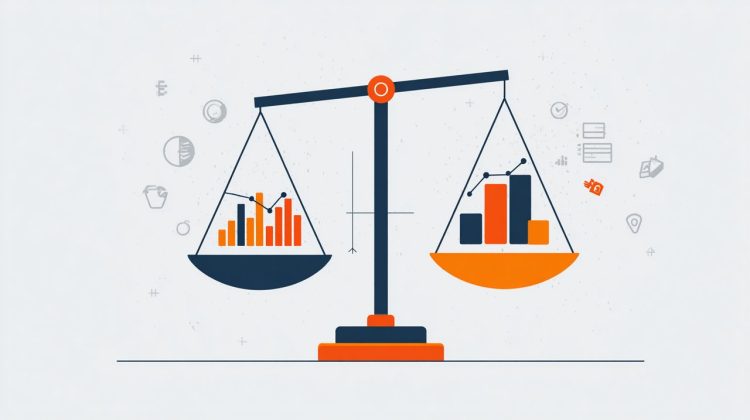Navigating Mortgage Costs: Your Friendly Expert Guide to Accuracy
Buying a home is one of life’s most significant decisions, and getting a clear picture of your potential mortgage costs is absolutely essential. Yet, with so many tools out there, many of us find ourselves asking: “Which one can I truly trust?” It’s a common misconception that a simple mortgage calculator or an online quote can give you the definitive, final answer.
This oversight often misses the deeper principles and inherent limitations of these tools. Such misunderstandings can lead to unexpected budget challenges, potentially derailing your entire home-buying journey. But don’t worry, we’re going to move beyond just comparing pros and cons.
Instead, we’ll dive into how mortgage calculators and online quotes actually work, offering a practical guide on when and how to best use each. Our goal? To empower you with the knowledge to achieve the most accurate mortgage cost assessment possible.
Accuracy Isn’t a Single Number: Understanding Mortgage Assessment Tools
When we talk about accuracy in mortgage cost assessment, it’s really a relative concept, not some fixed property of a single tool. Think of it this way: the “right” number is constantly shifting, influenced by a complex dance of interest rates, various fees, your personal credit history, and the ever-changing market.

Because mortgage financing is inherently complex, there’s no single, static “accurate” figure. Our main objective shouldn’t be to chase a mythical “most accurate” number. Instead, we need to focus on finding the estimate that is most useful for where you are in your home-buying journey.
A common pitfall is treating initial estimates as final loan commitments. These figures are dynamic and can change, simply because they can’t account for the real-time shifts that define the mortgage market.
“All models are wrong, but some are useful.” — George E. P. Box. This insight applies perfectly to mortgage cost assessment tools, reminding us to understand their utility rather than expecting them to be flawless.
Mortgage Calculators: Your First Step for Exploring Loan Scenarios
A mortgage calculator works on a straightforward principle: you input certain details — like the loan amount you’re considering, an assumed interest rate, and your desired loan term — and it uses a pre-established mathematical formula to give you an estimate.
The output? An estimated monthly payment and the total interest you’d accrue over the life of the loan. It’s a closed system, meaning it gives you predictable results based on what you tell it.
This tool truly shines in the early stages of financial planning. It’s invaluable for quickly grasping how different loan scenarios might affect your monthly budget. It helps you build a foundational understanding of your potential mortgage cost, allowing for quick “what-if” analyses. For example, you can easily see how even a small change in the interest rate or loan term can alter your monthly payments, a process made incredibly straightforward with a dedicated tool designed to help you explore these variables Mortgage Calculator.

To ensure you’re getting reliable information, always choose mortgage calculators from trusted sources, like reputable financial institutions or well-known professional websites. And don’t just use it once! Actively play around with different hypothetical scenarios. This simulation process is key to getting a comprehensive understanding of your financial capacity.
However, it’s crucial to acknowledge their built-in limitations. Calculators typically don’t account for all upfront costs, such as closing fees, property taxes, or homeowner’s insurance premiums. Their results are based on static assumptions and often don’t reflect the real-time market volatility that defines actual mortgage offerings.
Online Mortgage Quotes: A Real-Time Glimpse into the Market
Online mortgage quotes operate differently; they act as your window into current market conditions. By collecting some basic financial information — like your estimated credit score range, income, and the type of property you’re looking for — these platforms can solicit approximate interest rates and associated fees from multiple lenders.
These figures are inherently more reflective of the market’s pulse at that specific moment. The primary value of online mortgage quotes lies in their real-time nature. They’re designed to capture and reflect current market interest rate trends, giving you a much more up-to-date snapshot than a static calculator could.
Crucially, they offer a quick comparison across various institutions, which is incredibly valuable for understanding your potential home loan cost from different providers. Imagine a market where interest rates are constantly shifting. In such a scenario, an online quote can significantly outperform a traditional calculator.

It provides figures that are much closer to the actual home loan cost you might encounter, reacting swiftly to economic changes. This agility offers a distinct advantage when market conditions are volatile.
Just remember to understand the difference between a “soft inquiry” and a “hard inquiry” when using these services, as only hard inquiries can impact your credit score. Also, keep in mind that these online quotes are generally pre-approvals or preliminary estimates. They don’t represent a final, locked-in interest rate and will always require further application and verification processes by the lender.
Your Smart Strategy: Integrating Tools for Each Purchase Stage
Effective mortgage cost assessment isn’t about picking one tool over the other. It’s about strategically integrating mortgage calculators and online mortgage quotes throughout your home-buying journey. Each tool offers distinct advantages that are best leveraged at specific points:
- Initial Exploration Stage: Start with a mortgage calculator. This allows for quick estimations, helping you understand your approximate monthly payments and overall financial capacity. It’s perfect for setting a preliminary budget and exploring various loan scenarios without any commitment.
- Mid-Stage Comparison Phase: Once you have a clearer idea of your budget, transition to online mortgage quotes. Use these to gather real-time interest rates and fees from multiple lenders. This allows for a detailed, competitive comparison, helping you identify potential lenders and optimal terms.
- Final Application Stage: While online quotes provide valuable preliminary data, the ultimate reference point should be the official Loan Estimate provided directly by the lender. Treat online quotes as strong indicators, but always confirm the final terms through direct communication and formal documentation.
Always use both tools as complementary references. Supplement their findings with direct conversations with a qualified loan officer. Imagine a homebuyer who first uses a calculator to define their affordable budget, then employs online quotes to narrow down competitive bank offers, and finally engages with their chosen bank to secure a personalized, verified loan package. This phased approach ensures a comprehensive and refined understanding of all costs.
Your Path to Confident Mortgage Decisions
Ultimately, accurately assessing mortgage costs isn’t achieved through the magic of a single tool. It stems from a deep understanding of each tool’s purpose, coupled with a keen awareness of market dynamics and an honest evaluation of your personal financial situation.
Through this guide, you should now possess a clearer comprehension of the unique strengths and limitations of both mortgage calculators and online quotes, empowering you to make more informed and confident decisions in the complex mortgage market. Now is the opportune moment to translate these insights into action.
Embark on your mortgage cost assessment journey with confidence, remembering that continuous learning and diligent verification are your most powerful allies in securing the best possible home loan solution.
💡 Frequently Asked Questions
Accurately assessing mortgage costs is a relative concept, not a fixed number. It's influenced by a complex and dynamic interplay of interest rates, various fees, your personal credit history, and the ever-changing market. Initial estimates are not final loan commitments and can shift.
Mortgage calculators are ideal for the early stages of financial planning. They help you quickly estimate monthly payments and total interest based on assumed loan amounts, interest rates, and terms, allowing you to explore various 'what-if' scenarios and understand your potential budget.
Online mortgage quotes provide a real-time glimpse into current market conditions. By inputting basic financial information, they solicit approximate interest rates and fees from multiple lenders. They are most valuable in the mid-stage for comparing offers across various institutions, especially when market conditions are volatile.
No, online mortgage quotes are generally preliminary estimates or pre-approvals. They do not represent a final, locked-in interest rate and always require further application and verification processes by the lender.
The recommended strategy is to integrate both tools: start with a mortgage calculator for initial budget exploration, then use online mortgage quotes for mid-stage competitive comparisons of real-time rates. Finally, always confirm the ultimate terms with the official Loan Estimate provided directly by the lender and through direct conversations with a loan officer.








